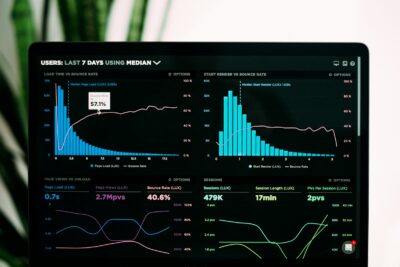How Integration of Enterprise Resource Planning and Customer Relationship Management Systems Drives Sales Growth
Streamlining Sales Processes for Optimal Efficiency
ERP-CRM integration enhances sales performance by providing sales teams with real-time inventory levels and pricing information.
In today’s fast-paced business landscape, the integration of Enterprise Resource Planning (ERP) and Customer Relationship Management (CRM) systems has become a cornerstone for driving sales performance, particularly in dynamic markets like Saudi Arabia and the UAE. ERP-CRM integration creates a unified platform where sales teams can access real-time inventory levels and accurate pricing information. This streamlined approach eliminates the need for manual data entry and reduces the risk of errors, enabling sales representatives to focus on building relationships and closing deals. By having a holistic view of customer interactions and inventory data, businesses can optimize sales processes, improve lead conversion rates, and ultimately boost revenue generation.
Enhancing Customer Satisfaction and Retention
The integration of ERP and CRM systems is not just about internal efficiency; it’s also about enhancing the customer experience. When sales teams have access to up-to-date customer information, including purchase history, preferences, and previous interactions, they can personalize their approach and offer tailored solutions. This level of personalization fosters stronger customer relationships, leading to increased satisfaction and loyalty. In markets like Riyadh and Dubai, where customer expectations are high, ERP-CRM integration can be a differentiating factor that sets businesses apart from their competitors.
Data-Driven Decision Making for Strategic Sales Growth
Perhaps one of the most significant advantages of ERP-CRM integration is the wealth of data it generates. This data can be analyzed to gain valuable insights into customer behavior, sales trends, and product performance. By leveraging these insights, businesses can make informed decisions about sales strategies, marketing campaigns, and inventory management. This data-driven approach allows companies to identify growth opportunities, optimize pricing strategies, and allocate resources effectively. In the context of the Gulf’s rapidly evolving markets, the ability to adapt quickly based on real-time data is crucial for sustained sales growth.
Leveraging AI and Blockchain for Next-Level Integration
The integration of Artificial Intelligence (AI) and Blockchain technologies into ERP-CRM systems is poised to revolutionize sales performance even further. AI-powered algorithms can analyze vast amounts of data to identify patterns and trends that humans might miss, enabling businesses to anticipate customer needs and proactively offer solutions. Blockchain, on the other hand, can ensure the security and immutability of customer data, building trust and transparency in the sales process. These emerging technologies have the potential to take ERP-CRM integration to the next level, unlocking new avenues for growth and innovation.
Executive Coaching and Effective Communication for Sales Success
While technology plays a crucial role in sales performance, the human element remains indispensable. Executive coaching programs can equip sales leaders with the skills and strategies needed to motivate their teams, set clear goals, and drive results. Effective communication, both within the sales team and with customers, is essential for building rapport, understanding needs, and closing deals. By investing in leadership development and communication training, businesses can create a high-performing sales culture that aligns with the technological advancements of ERP-CRM integration.
The Metaverse and Generative AI: The Future of Sales Engagement
As we look to the future, the Metaverse and Generative AI are emerging as transformative forces in the sales landscape. The Metaverse offers immersive virtual environments where businesses can interact with customers in novel and engaging ways, creating unique sales experiences. Generative AI, with its ability to create realistic simulations and personalized content, can revolutionize sales presentations and product demonstrations. These cutting-edge technologies have the potential to redefine how businesses connect with customers and drive sales in the digital age.
Custom ERP-CRM Solutions for Unique Business Needs
Recognizing that every business has its own unique requirements, custom ERP-CRM solutions have emerged as a viable option. These tailor-made systems are designed to align perfectly with a company’s specific processes, workflows, and data structures. By opting for a custom solution, businesses in the Gulf can address industry-specific challenges, incorporate regional regulations, and optimize their sales operations for maximum efficiency. This level of customization ensures that the ERP-CRM integration not only meets current needs but also adapts to future growth and changes in the business landscape.
The Role of Change Management in Successful ERP-CRM Integration
Implementing an ERP-CRM integration is a significant undertaking that involves changes to processes, systems, and potentially even organizational culture. Therefore, effective change management is crucial for a successful transition. This involves clear communication with employees, comprehensive training programs, and ongoing support to ensure that everyone understands the benefits of the integration and can utilize the new tools effectively. Change management also addresses potential resistance to change and helps to create a positive and collaborative environment where the integration can thrive.
Measuring and Optimizing the Impact of ERP-CRM Integration
To maximize the value of ERP-CRM integration, businesses need to track and measure its impact on sales performance. This involves setting key performance indicators (KPIs) that align with business goals, such as increased sales revenue, improved lead conversion rates, and enhanced customer satisfaction. Regular monitoring of these KPIs allows companies to identify areas where the integration is delivering results and areas that may require adjustments. By continuously analyzing data and refining strategies, businesses can optimize the impact of their ERP-CRM integration over time.
The Future of ERP-CRM Integration: Continuous Innovation and Adaptation
The world of technology is constantly evolving, and ERP-CRM integration is no exception. As new technologies emerge, such as advanced analytics, machine learning, and augmented reality, businesses will have even more opportunities to enhance their sales performance through integration. The future of ERP-CRM integration lies in continuous innovation and adaptation. By staying abreast of the latest trends and embracing new tools, businesses in the Gulf can ensure that their sales operations remain agile, competitive, and ready to capitalize on emerging opportunities.
#ERPCRM #SalesPerformance #CRM #ERP #BusinessGrowth #DigitalTransformation























